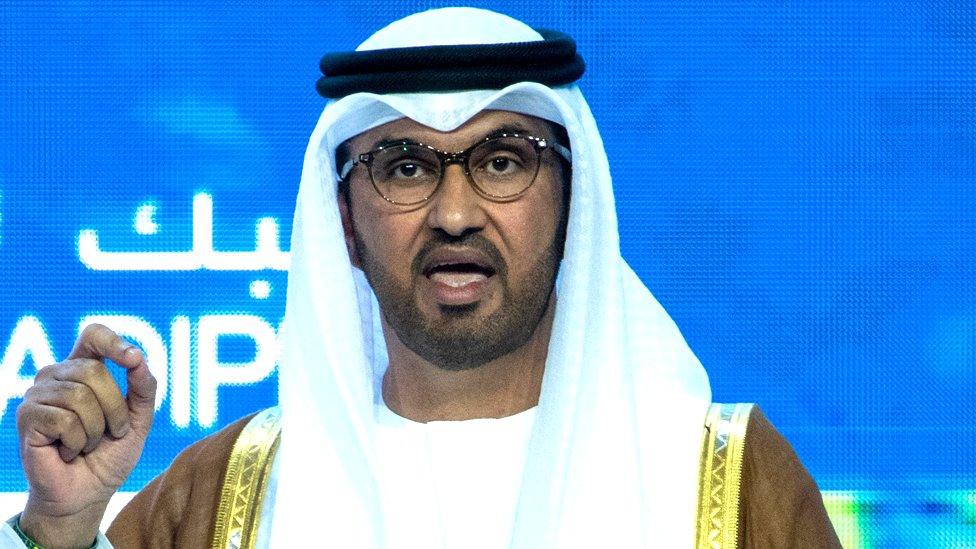Climate change tackled by pupils in mock COP28 event in Belfast
- Published
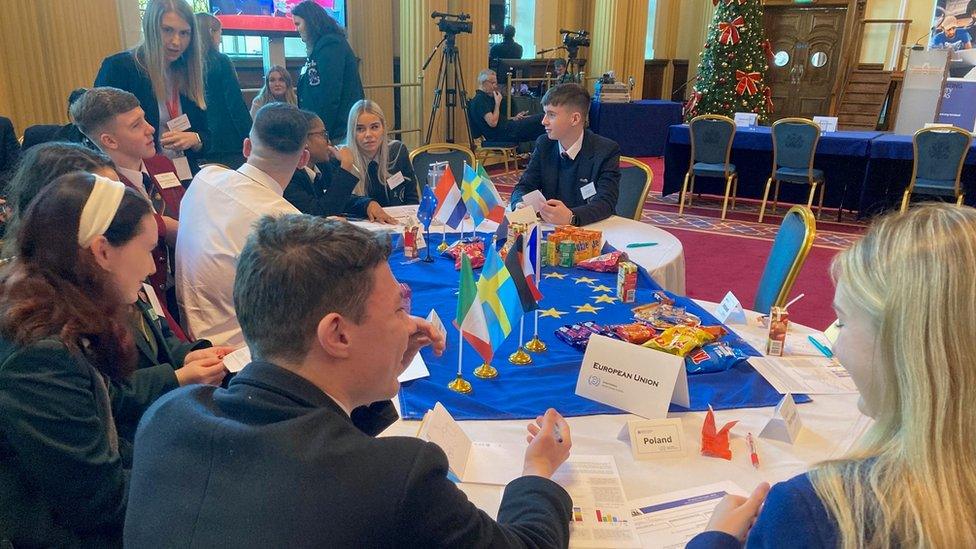
Pupils from schools across Northern Ireland took part in the mock COP28 event on Thursday
About 100 pupils from 30 schools have become world leaders for the day at a mock COP28 event in Belfast.
The students linked up with others in Egypt while the United Nations climate summit kicked off on Thursday in Dubai.
Representing many of the countries attending the actual event, pupils took on the roles of UN Secretariat General, negotiators, climate activists, lobbyists and journalists.
They debated the same issues facing delegates in the United Arab Emirates.
The pupils worked through the first "global stocktake" of the Paris agreement, an examination of efforts made by countries to reduce planet-warming emissions and keeping global temperatures "well below" 2C since the pact was signed in 2015.
In Dubai, delegates are set to make decisions based on the first-ever stocktake, and is intended to inform the next round of climate change plans under the agreement, external.
During the negotiations in Belfast, the students had to collectively agree on how much they were going to reduce greenhouse gas emissions by, how they would help struggling nations, and agree on ways to adapt to climate change to protect their cities and people.
Global perspective
Candice from St Joseph's High School, Crossmaglen in County Armagh took part in Thursday's event representing Other Developing Nations.
She said the event - which was organised by the British Council - was "very important" in helping pupils gain a global perspective when it comes to climate change.
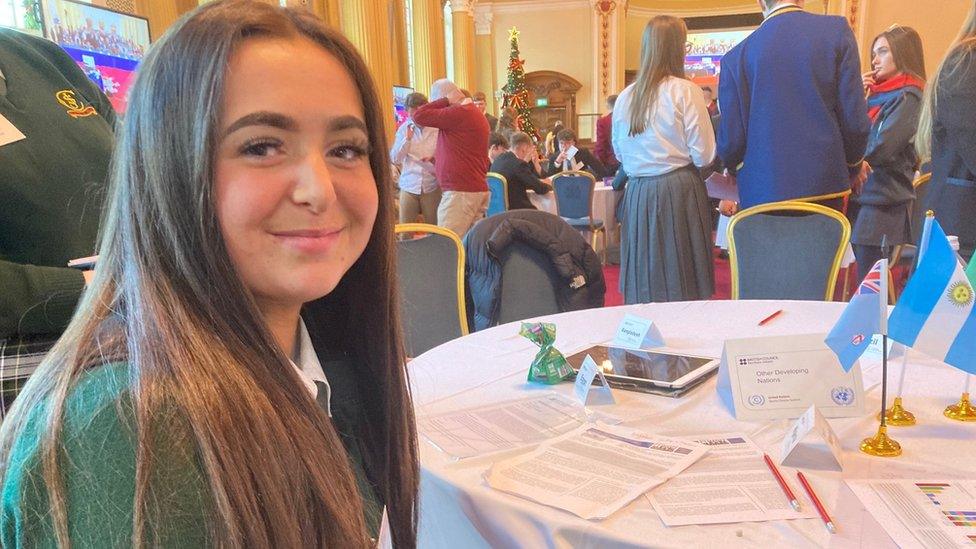
Candice praised the event and says it has helped her understand how other countries respond to climate change
"It helps us get more insight into what's going on in Bangladesh, Nigeria, Brazil, all these developing countries," she said.
Other students, like Sonia from Hunterhouse College in Finaghy, were taking on the role of climate activists intent on lobbying the different politicians in the room.
"We just really want to get the governments here to understand the severity of the issue and really understand how they can make their change and their impacts," she told BBC News NI.
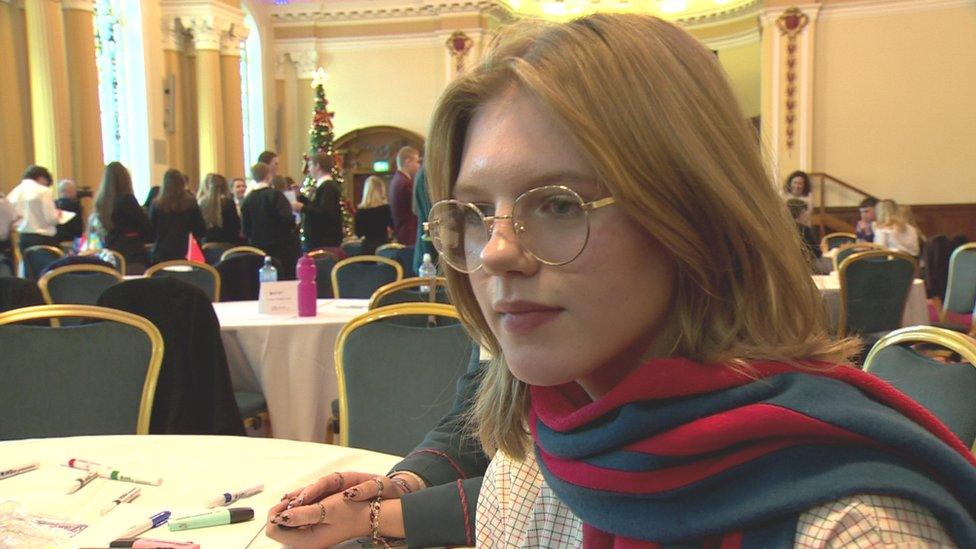
Sonia was part of the climate activist group at the mock COP28 event
Sonia said the event provided young people with an "immersive experience" by roleplaying countries and talking to others.

What is COP28?
COP28 is the 28th annual United Nations (UN) climate meeting where governments will discuss how to limit and prepare for future climate change.
The almost two week long summit is taking place in Dubai from 30 November until 12 December.
It is hoped the conference will keep alive the goal of limiting long-term global temperature rises to 1.5C. This was agreed by nearly 200 countries in Paris in 2015.
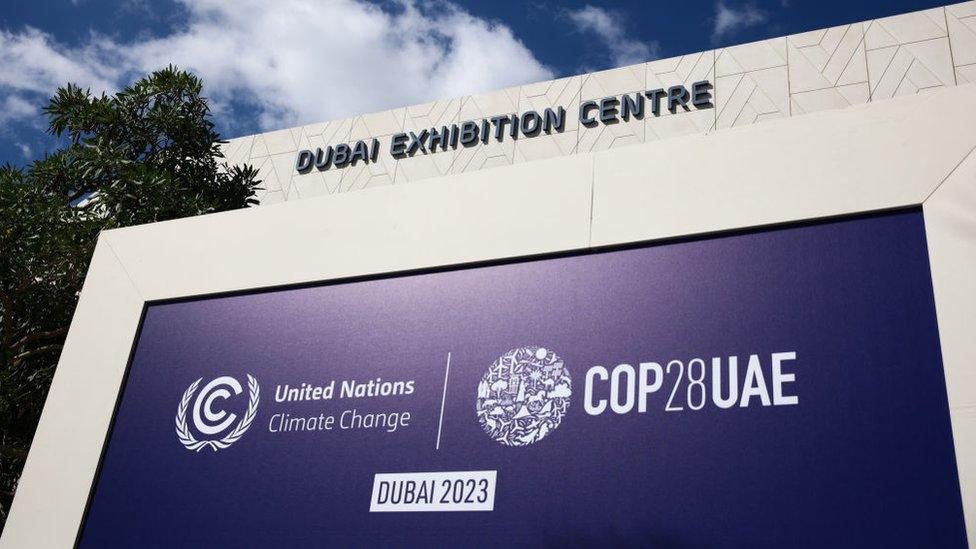
On the first day of COP28, the head of the UN said 2023 will be the hottest year in human history.
António Guterres said the record showed "we are living through climate collapse in real time".
Read more: Why is the COP28 climate summit in Dubai important?

Mediating negotiations as UN Secretariat Generals were Sinead and Beth from St Dominic's Grammar School.
While some arguments had already broken out between countries, both were hopeful of an agreement by the end of the event.
"We didn't realise that this was on the scale that it would be and we'd delivering all the speeches in front of everybody but it's going well," said Beth.
The negotiations at Belfast City Hall were led by Dr Peter Doran, Senior Lecturer in Law, from Queen's University Belfast (QUB), and Dr Amanda Slevin, Director of the QUB Centre for Sustainability, Equality and Climate Action.
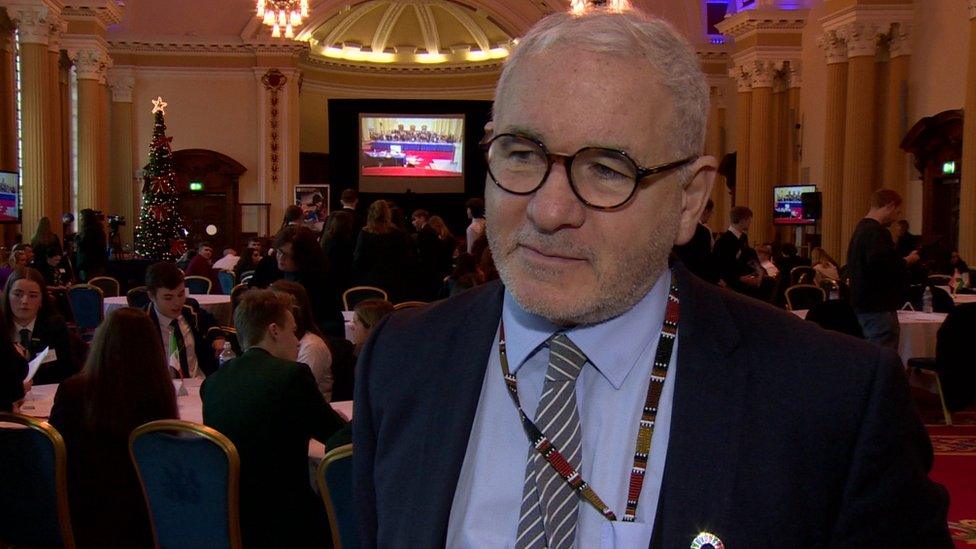
Law lecturer Dr Peter Doran said the event would help to shape young people's perspectives of climate change
Dr Doran said the event gave the young people a "visceral sense" of the inequality of powers in global politics, as well as leadership skills.
"It's young people who are not invested in the status quo," he said.
"It's young people who are able to ask the very difficult questions, and we're giving them an opportunity today to do that, to rehearse their leadership, to learn about the process but to go back to their schools and communities to ask those difficult questions of people in my generation who maybe run away from some of the difficult tasks at hand."
- Published30 November 2023
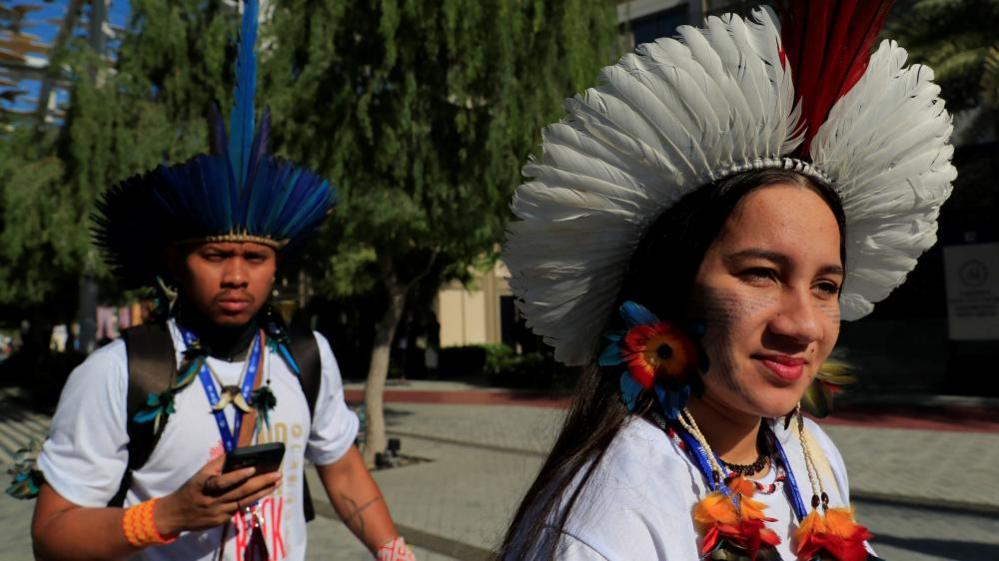
- Published13 December 2023
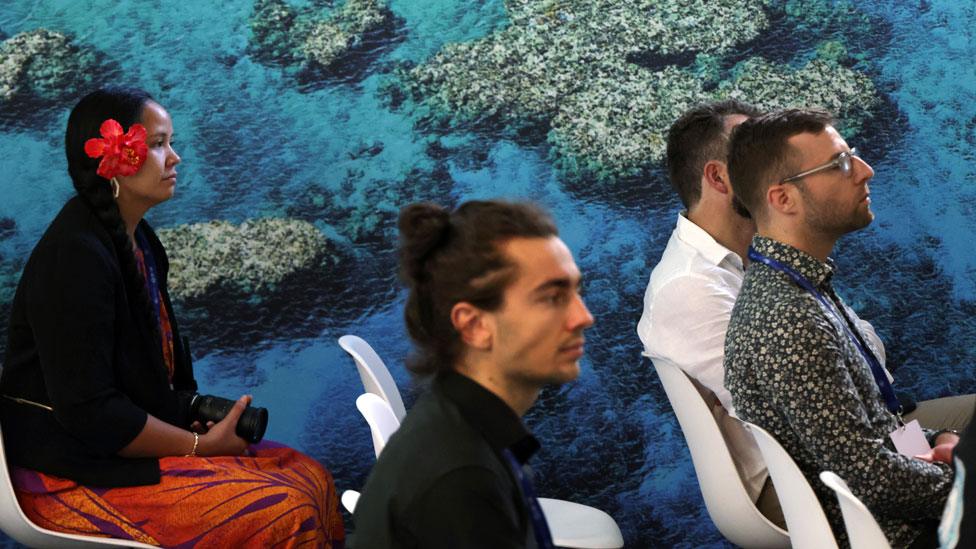
- Published29 November 2023
